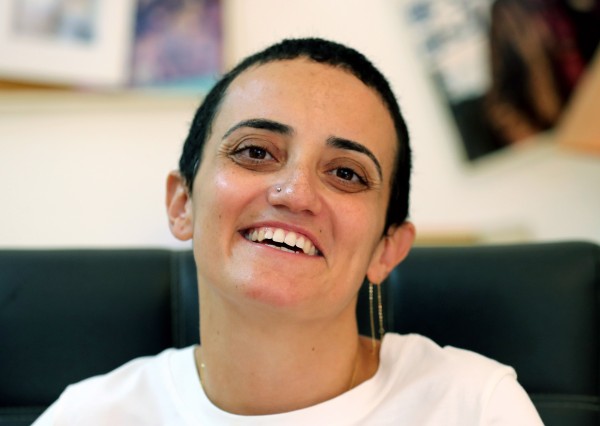Underscoring the challenges facing journalists in Egypt, International Press Institute (IPI) Executive Director Alison Bethel McKenzie today urged Cairo to live up to its international commitments to press freedom.
McKenzie, speaking in Geneva on a panel discussing the crackdown on news media during the recent turmoil in Egypt, pressed the military-backed government to free jailed journalists and “to reverse its efforts to silence news organisations, whether they are Egyptian or international”.
The IPI executive director spoke at an event sponsored by the Amman Center for Human Rights and Al Jazeera, one of the foreign news organisations that has been barred from broadcasting in Egypt and whose journalists have faced detention.
IPI has repeatedly called for Egyptian authorities to respect their international commitments to press freedom since the crackdown on loyalists of deposed president Mohamed Morsi began in mid-August. Since then, security forces have rounded up numerous journalists, including photographers and correspondents for international media. At least five journalists were killed in the days after forces moved in to crush anti-government demonstrations, and one was killed during protests in July.
Bethel McKenzie prepared the following remarks for the Geneva event, “The Challenges of Media Coverage in Egypt”:
“Challenges of Media Coverage in Egypt”
The Amman Center for Human Rights Studies and Al Jazeera
Geneva, 19 September 2013
Remarks of Alison Bethel McKenzie
Executive Director, International Press Institute
I want to thank Al Jazeera for making this important meeting possible, and for arranging the startling eyewitness accounts we just heard from our Al Jazeera colleagues.
We must honour their courage, along with the many other journalists who have been wounded, jailed or suffered while doing their jobs these last few weeks in Egypt. And let us not forget those who have paid with their lives: By our count, at least six media workers have been killed in Egypt since July 3rd, making it one of the world’s top five deadliest places for journalists.
At IPI, we are deeply concerned that journalists have become scapegoats for both sides in Egypt’s unrest. We documented several cases where Egyptian journalists were accused of being pro-government and assaulted by demonstrations. In at least one case, a journalist was severely beaten and hospitalised. His family was harassed by callers using the journalist’s own telephone.
As for the government there has been a dangerous pattern of the authorities trying to muzzle independent reporting – and strong evidence of the deliberate targeting of foreign journalists and international media. Al Jazeera has had its offices ransacked, burned and its broadcasts ordered off the air. Both its foreign and local staff have been jailed, some for days at a time, others expelled from the country.
They are not alone. Turkish print and TV correspondents have also been jailed, their offices raided and equipment seized. A German photographer we interviewed was arrested and jailed on charges that included wearing a bullet-proof vest and carrying a gas mask while photographing demonstrations. With hundreds of people gunned down in the streets, who could blame him?
This deliberate targeting of journalists is counterproductive. It muzzles independent voices at a time when Egyptians and the outside world need to understand what is happening – and desperately need forums for dialogue. By targeting the media, Egypt’s rulers only give ammunition to their opponents who say they have no intention to restore democracy.
It is appropriate that this event is held in Geneva, the home of the UN High Commissioner for Human Rights and the birthplace of the Geneva Conventions and their doctrine of protecting non-combatants – including journalists – from harm and censorship in times of conflict.
In this spirit, IPI fully supports Al Jazeera’s decision earlier this month to hire lawyers to pursue action to protect its rights to report and broadcast in Egypt. IPI also urged Egypt, as an early signer of both the Universal Declaration of Human Rights and the Geneva Conventions, to live up to the country’s international obligations.
- First, the government must free all journalists who were detained while carrying out their duties.
- Second, the government must reverse its efforts to silence news organisations, whether they are Egyptian or international.
- Third, government authorities must be held responsible for the illegal destruction or confiscation of property belonging to journalists or news organisations. When it comes to respect for press freedom and individual rights of expression, the government must set the standard – and this should include respecting international laws on human rights and press freedom.
- Finally, for journalists – you must adhere to journalistic best practices. No freedom is free. All freedom comes with responsibility. Responsibility to report fairly, accurately and without bias.
We call on Egypt’s big benefactors – including the United States and European Union – to make clear that attacks on journalists – foreign or domestic – will not be tolerated. If necessary, both must go further than the steps they’ve taken – such as Europe’s restrictions on weapons sales – to ensure that journalists and their news organisations are not used as scapegoats.
(end)
* Article 4 A (4) of the Third Geneva Convention and Article 79 of Additional Protocol I.


